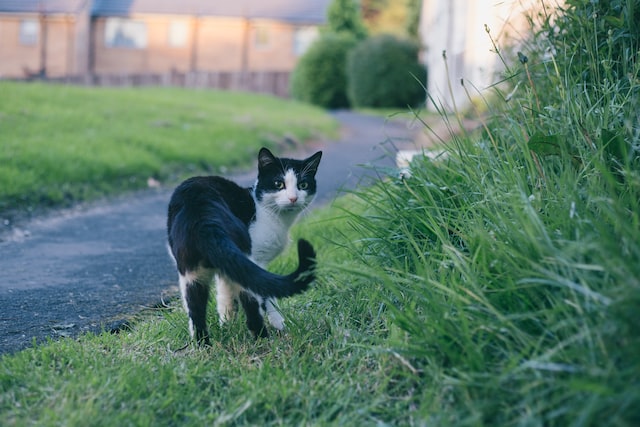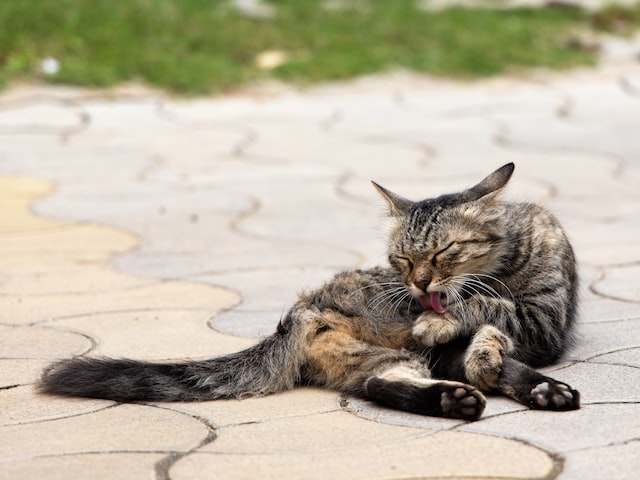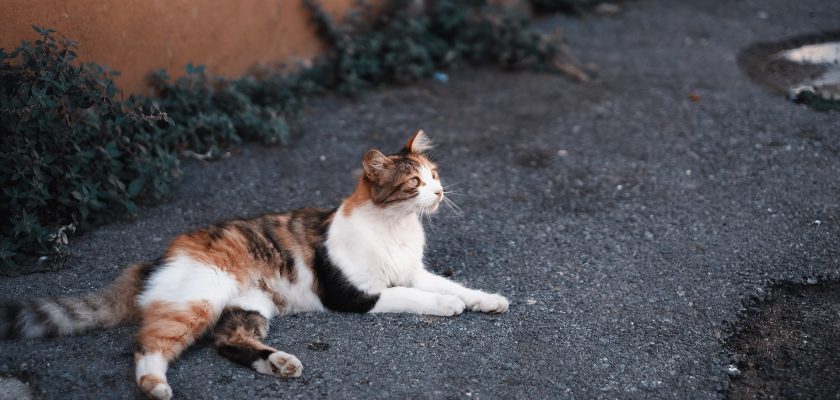If your cat is displaying symptoms of an abscess or if it is defecating outside of its litter box, then it might be an indication that it needs the glands to be expressed. When it comes to treating this condition, there are several ways to treat it. You might find that you can treat it yourself at home, or you might want to consult with a veterinarian.
Defecating outside the litter box
When your cat defecates outside the litter box, it can be a frustrating experience. However, if you know what to look for, you’ll find that you can quickly diagnose and treat your pet’s problem.
The most common reason cats poo outside the box is a bladder infection. Infections can be painful and cause the lining of the bladder to swell. If the infection isn’t treated, the pain can be chronic. Fortunately, a veterinarian can help you diagnose and treat the problem.
Another possible cause of cat poop outside the box is anal gland problems. Anal glands are small balloon-like sacs underneath the skin. They produce a foul-smelling fluid when cats poop. It helps the cat mark its territory. But when the glands become infected, the anal sacs may become clogged, preventing normal urination.
Anal gland problems are especially prevalent in cats who are overweight. These animals are also more likely to suffer from allergies or inflammatory conditions.
If your cat is displaying any of these symptoms, it’s important to get it checked by a vet. A vet can examine the anus and ducts to determine the causes of the problem.

Photo by Rebecca Campbell on Unsplash
Cats who have anal gland issues may show signs such as pain, straining, and a decreased amount of activity. Depending on the severity of the issue, a vet can lance the abscess or inject antibiotics into the anal sacs.
Cats with anal gland problems may lick the area around the anus. The licking could be a sign of anal gland inflammation. If your cat shows any of these signs, your veterinarian should express the gland to loosen the thick material.
Cats with anal gland issues may also display other less obvious signs. For example, they may display a strong aversion to the litter box.
Scooting
If your cat has a lot of tail chasing and licking at the anal area, then it may be time to check for anal glands. The glands can become inflamed or blocked, causing pain and discomfort for your pet. Fortunately, most cases can be resolved by your vet.
Anal glands are located on the sides of your rectum. They produce an oily substance. These secretions are tan or brown in color and are usually smelly. However, inflamed anal glands can make defecation difficult.
Most cats don’t suffer from anal problems, but owners should be aware of their signs and symptoms. Cats that are overweight or obese are more likely to experience anal gland issues, so keep an eye on your cat’s diet.
When a cat is stressed, its anal glands will be expressed. Some pets will learn to express their anal glands at home, while others will need to have them expressed by a professional.
One common mistake cat owners make when expressing their anal glands is squeezing the glands too hard. This can cause the secretion to harden with a grainy texture. A good way to prevent this is by wearing surgical gloves.
The most obvious sign of an anal gland problem in a cat is scooting. Cats that are prone to anal problems will begin to scoot their hindquarters across the floor.
Another common symptom is redness in the anal area. This is caused by an infection. It is also called urticaria. Urticaria causes a cat to be very sensitive, causing them to avoid rubbing against walls and other surfaces.
Using a moist cloth or wet wipes is a good way to clean the anal area.
Thickened fluid build up
If you’re wondering if your cat needs glands expressed, you may be surprised. A few signs may indicate this.
First, you should check your cat’s anal sac. This is a small sac that sits beneath the skin. The glands inside are not visible, but they can be very sensitive. They become blocked with fluid if not emptied regularly. Anal sac discomfort can be caused by a variety of issues, including allergies.
Second, you should get your cat to the vet. In some cases, a veterinarian can perform a manual expression of the anal glands. However, a recurrent problem can be an indication of anal sacculitis.
Third, there are some things you can do at home to express the glands. These include giving your cat a moist wipe. Also, putting a damp paper towel over the anal area can help clean the area.
Depending on your cat’s age and size, you may need to express the glands more frequently. Obese cats are more likely to develop this problem.
Fourth, you can take your cat to a vet if you suspect that the anal glands are infected. Your vet can evaluate the condition and prescribe antibiotics if necessary.
Fifth, you can express the anal glands at home if you don’t want to bring your pet to a vet’s office. You’ll need gloves to avoid secretions and to maintain proper hygiene.
Finally, you’ll need to perform the procedure on a surface that’s easy to clean. The best place to do this is on a bathroom countertop.
One last tip: you should do the following three things: tell your vet what’s going on, restrain your cat, and retrain your cat.
Abscess formation
If your cat is licking or chasing its tail, you may have a problem with its anal glands. These glands can become infected, and they can also rupture. Fortunately, your vet can treat the problem and protect your pet from infection.

Photo by Syed Ahmad on Unsplash
If your cat is showing any of these symptoms, it is important that you get it checked out by your vet. The more severe cases of infection can cause an abscess, and you might need to take your pet to the veterinarian for treatment.
You can learn how to tell if your cat needs glands expressed by watching your cat. When your pet has a bowel movement, you can see if the anal glands are in good shape.
A cat that is overweight is more prone to developing anal gland disease. This is because the body is trying to compensate for the extra weight, and it can lead to anal blockage. Alternatively, the anal sacs can be blocked due to allergies, infection, or intestinal parasites.
Some signs of anal problems include a puddle of fluid behind the anal gland, or a bad odor. In other cases, anal secretions can be itchy or swollen.
Your cat’s anal sacs are a delicate structure that must be kept clean to keep it functioning properly. This can be done by washing the area with a damp towel or paper towel.
Another sign of anal problems is scooting. Cats tend to scoot when they are in pain. Usually, this symptom is caused by an intestinal parasite or an infection of the skin around the anus.
When your cat has anal problems, the best thing you can do is to call your vet. He or she can prescribe antibiotics and advise you on how to express the glands.
Treatment
A cat’s anal glands are tiny tubes that are situated beneath the anus. They are used to release fluid and secretions when defecating. If the glands aren’t regularly emptied, they can get clogged and become infected.
If your cat is having trouble expressing its anal sacs, you may want to consider bringing it to a vet. Veterinarians can express your cat’s anal sacs for you.
Expressing the anal glands will provide immediate relief to your pet. However, it’s not a pleasant job. To prevent the anal glands from becoming infected, keep your hands clean and wear gloves.
You should express your cat’s anal glands every six to eight weeks. This will allow your cat to drain properly. Besides, it will give you an opportunity to observe your pet’s behavior.
Once you’ve expressed your cat’s anal glands, you should use a damp cloth to clean the area. If your pet is suffering from an infection, you should flush the glands with an antiseptic solution.
In most cases, your veterinarian will prescribe antibiotics to treat the bacteria. Painkillers and sedatives may also be prescribed. These medications are usually given for several days.
The anal glands of cats can be very sensitive, and they can rupture if they aren’t expresses. The secretions of the anal glands range from yellow to brown. Some pets may need to have their anal sacs expressed a few times a week to relieve the discomfort.
In some cases, your pet will need surgical treatment to remove the affected glands. You may also need to give your cat pain relievers and antibiotics.
Your cat’s anal glands are small, and they need to be monitored for signs of inflammation or infections. If you suspect that your pet has an infection, you should take it to the vet as soon as possible.
